#MeToo movement ‘should be included in curriculum’
THERE are calls for schools to include the #MeToo movement against sexual harassment in the curriculum as experts warn the issue will be a major talking point among teenagers when they return next week.
NSW
Don't miss out on the headlines from NSW. Followed categories will be added to My News.
SCHOOLS are being told to prepare to have “open and frank” discussions with students about the #MeToo sexual harassment revolution sweeping the world — with experts, teenagers and even the government warning that the issue is so topical that it may even need to be incorporated into the curriculum.
The movement has dominated headlines in the holiday period with celebrities including Oprah and Nicole Kidman using the Hollywood awards season to speak out in the wake of the Harvey Weinstein revelations.
And teenagers have told The Daily Telegraph that it is the No. 1 thing they’re talking about — making it a live but controversial issue when school returns on January 29.
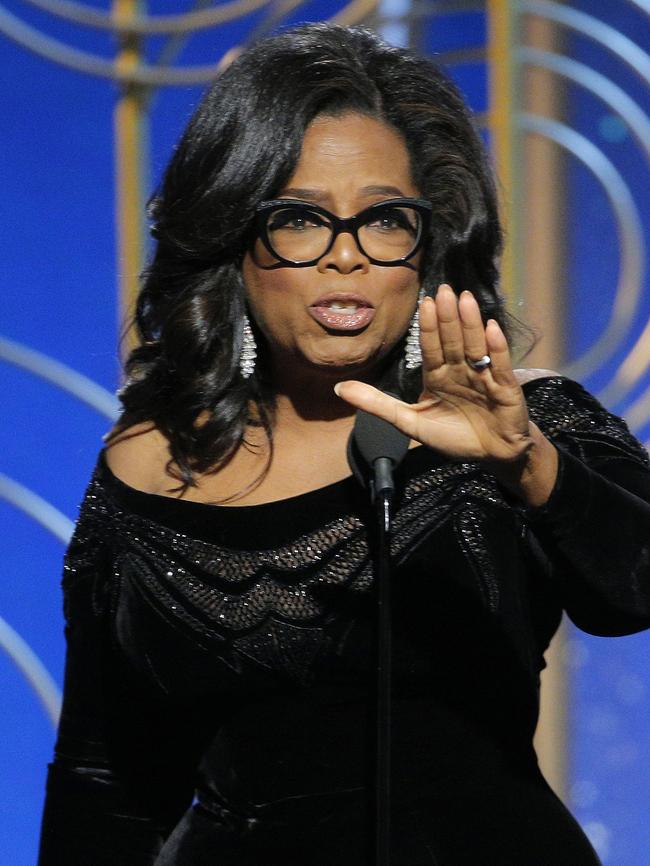
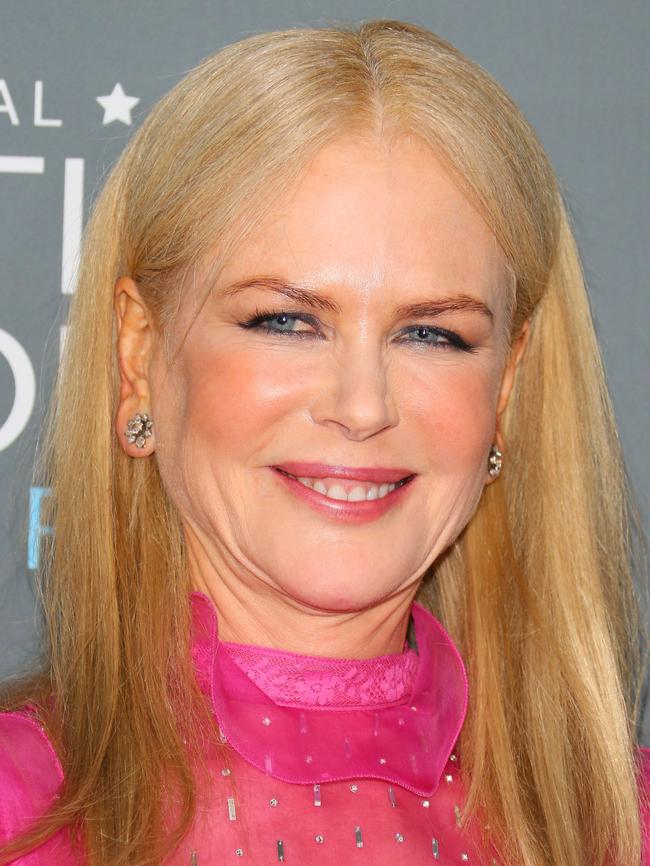
Education Minister Rob Stokes last night said schools shouldn’t be afraid to discuss #MeToo.
“As the cornerstone of our communities, schools are not isolated from current events,” he said.
SPECIAL FEATURE: After 50 years feminism is popular again
WATCH: Selena Gomez Joins The #MeToo Movement
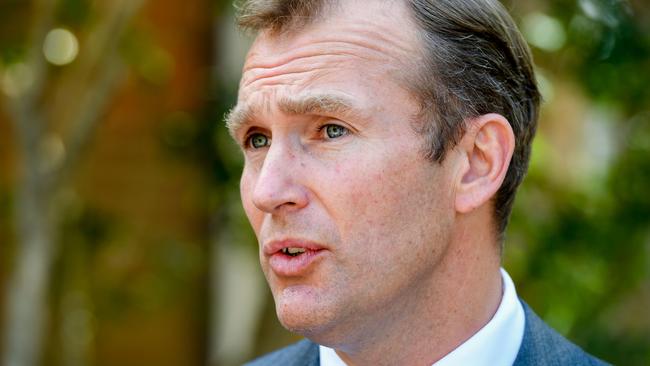
“Consequently, when issues of societal importance arise it is to be expected that, when appropriate, teachers discuss with students what these issues mean openly, frankly and objectively.”
Parenting expert Justin Coulson said #MeToo was “too important” to ignore.
“I think it would be remiss of schools not to incorporate #MeToo into their curriculum either in pastoral care or some sort of society and culture discussion,” he said.
Claire Harvey: #Metoo may be overdue, but it’s highly dangerous
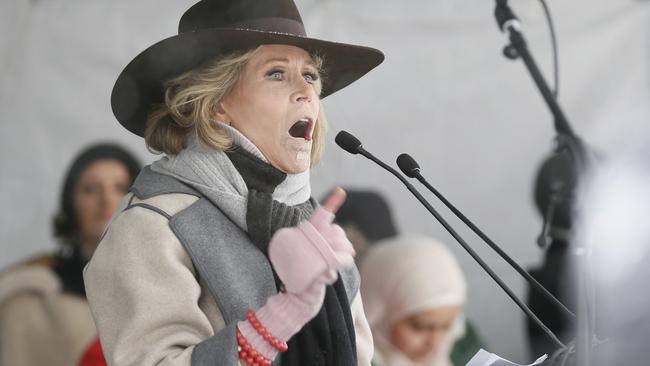
Dr Coulson said while schools did address issues of consent and respect, #MeToo was an opportunity for teachers to incorporate a major social movement into classroom discussions.
But he stressed any education should be “solutions-focused”.
Marina Passalaris, founder of teen confidence education program Beautiful Minds, said schools couldn’t afford to sweep the issue under the carpet.
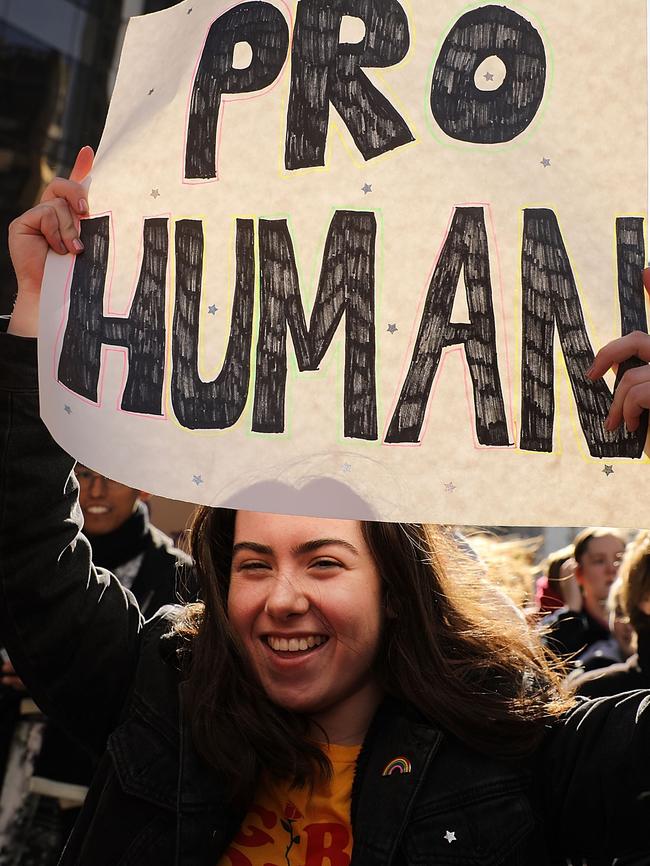
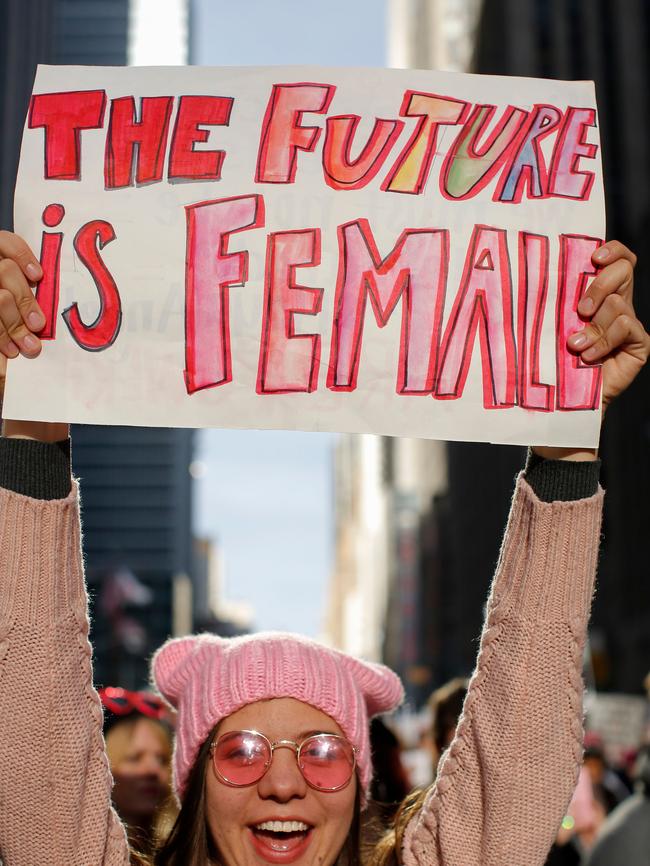
Ms Passalaris, whose teen clients are educated regarding the empowerment focus of the #MeToo movement, said most youngsters thought schools had tried to protect them from a conversation they wanted to have but felt too awkward to discuss with their own parents.
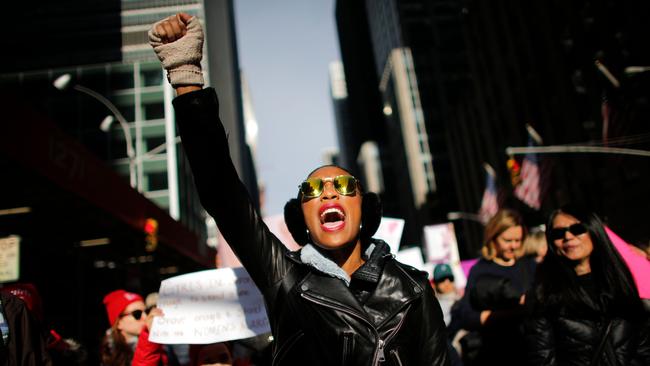
She suggested Year 7 wasn’t too early to start educating boys and girls, adding: “By the time they’re in Year 9 or Year 10, they’ve already had an experience where they haven’t known how to deal with it appropriately”.
Opposition spokesman for Education and former principal Jihad Dib said schools “should allow the conversation to happen” so long as it was taught within the right context.

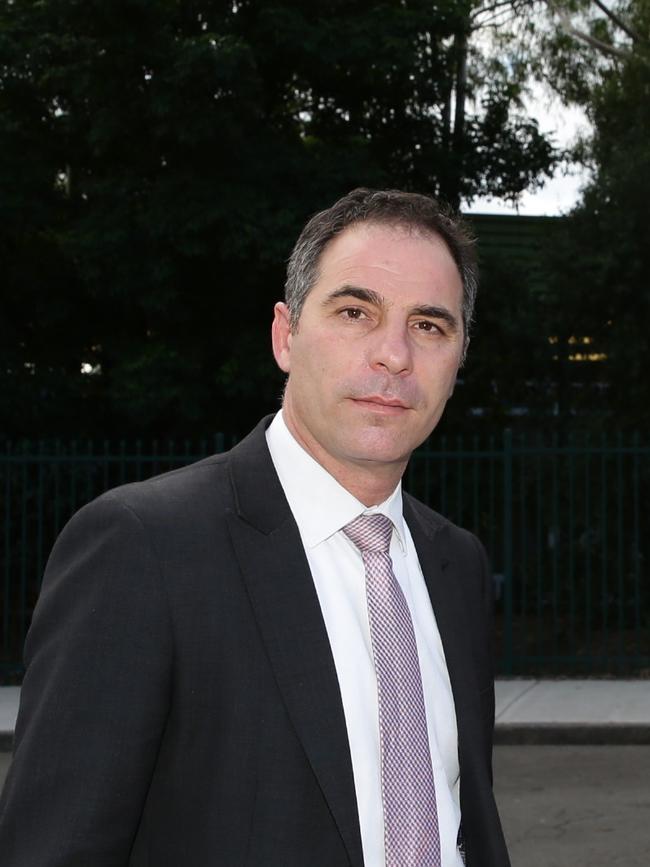
“If it’s not being taught in a formal way, then it should be certainly within some discussions that might come up particularly around subjects where we talk about social issues,” he said.
Child and adolescent psychologist Michael Carr-Gregg said #MeToo needed to be examined in a broader context given the current influence of online pornography on many teens’ educations about sex in general.
But NSW Secondary Principals’ Council president Chris Presland said the education system couldn’t be a catch-all for every issue.

“Every time something happens in the school community we want to add it to the school curriculum. I’m not sure how much more we can keep adding,” he said.
“If there is something that someone has in mind which is explicitly different to what’s already taught we’d be happy to look at it.”
A NSW Education Standards Authority spokesman said the mandatory K-10 PDHPE syllabus “provides opportunities for students to learn how to keep themselves safe and make appropriate decisions regarding their sexual health and wellbeing”.
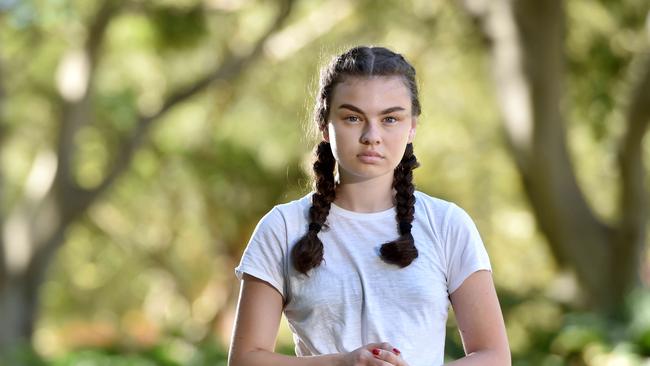
He said consent was addressed “in the broader context of interpersonal relationships, rights and responsibilities in relationships”. Inner west teenager Ali Kitinas said #MeToo was front of mind for her friends.
The 16-year-old model — who says she had an incident last year with a male photographer — said the Golden Globes had led her circle of friends to have “in-depth discussions” about the issue.
Her mother Lynne, 51, said schools shouldn’t ignore the “unsavoury” issues and could help “give the kids tools so they can deal with the outcome”.
Portman’s pain laid bare
OSCAR-WINNER Natalie Portman told thousands of women’s rights protesters how experiencing “sexual terrorism” in the entertainment industry at just 13 years of age led her to cover her body and change her behaviour entirely.
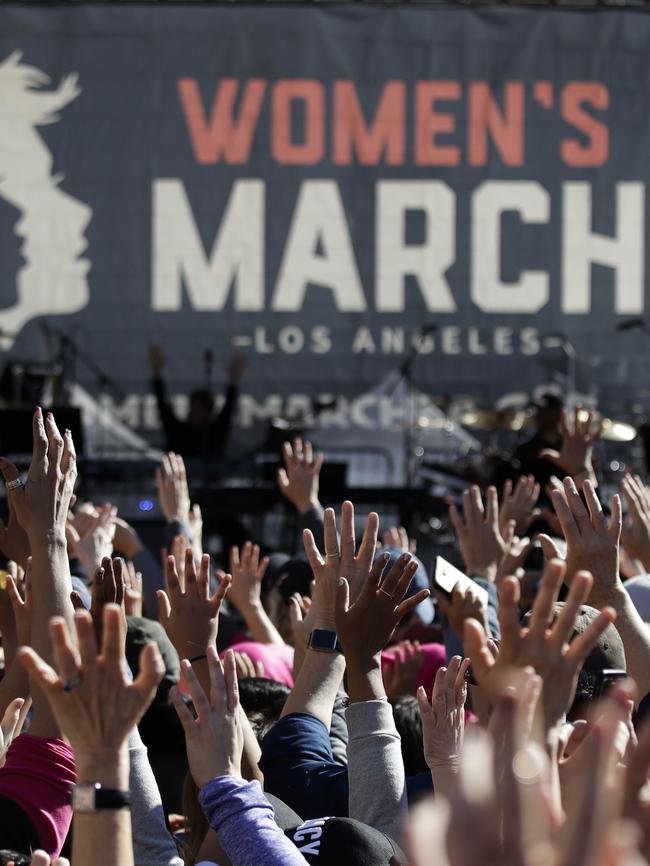
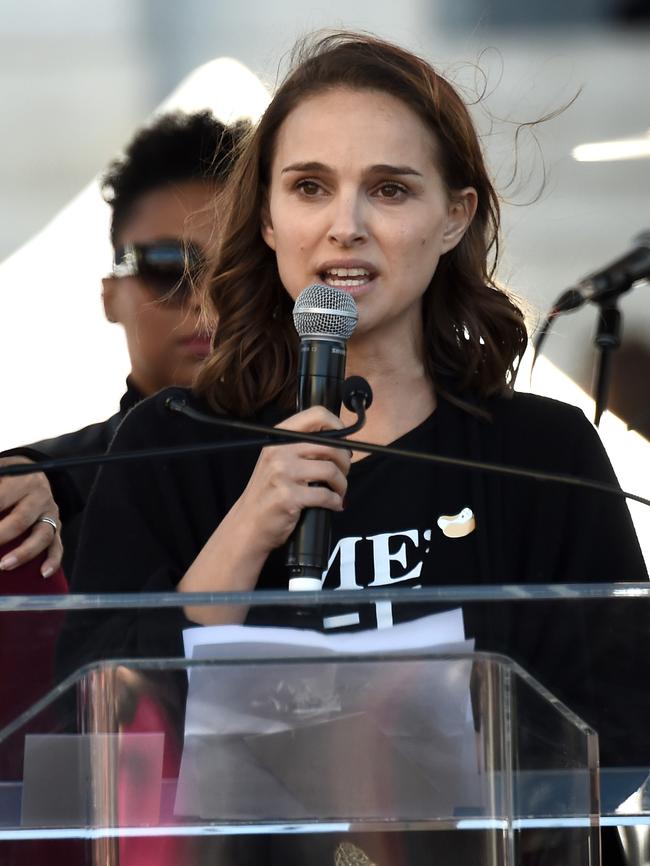
As protesters donned pink hats and took to the streets for Women’s March gatherings across the US to support female empowerment in the wake of the #MeToo and #TimesUp movements — while also targeting President Donald Trump on the one-year anniversary of his inauguration — the pregnant Portman led a Hollywood line-up addressing the issue in Los Angeles.

The 36-year-old, who turned 12 while filming action film Leon: The Professional, told the 600,000-strong crowd how her first fan letter a year later was a “rape fantasy” from a man.
Portman told the LA crowd she was forced to adjust her behaviour as a result of the 1995 film.
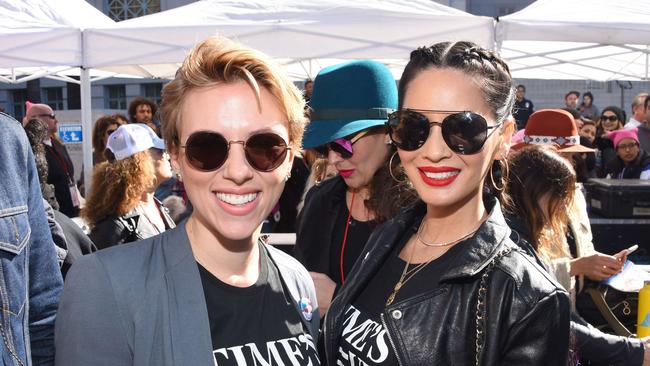
“At 13 years old, the message from our culture was clear to me,” she said.
“I felt the need to cover my body and to inhibit my expression and my work.
“The response to my expression, from small comments about my body to more threatening deliberate statements, served to control my behaviour through an environment of sexual terrorism.”
Portman was joined by actor Scarlett Johansson, who appeared to target James Franco in a speech asking for the return of her Times Up pin.


